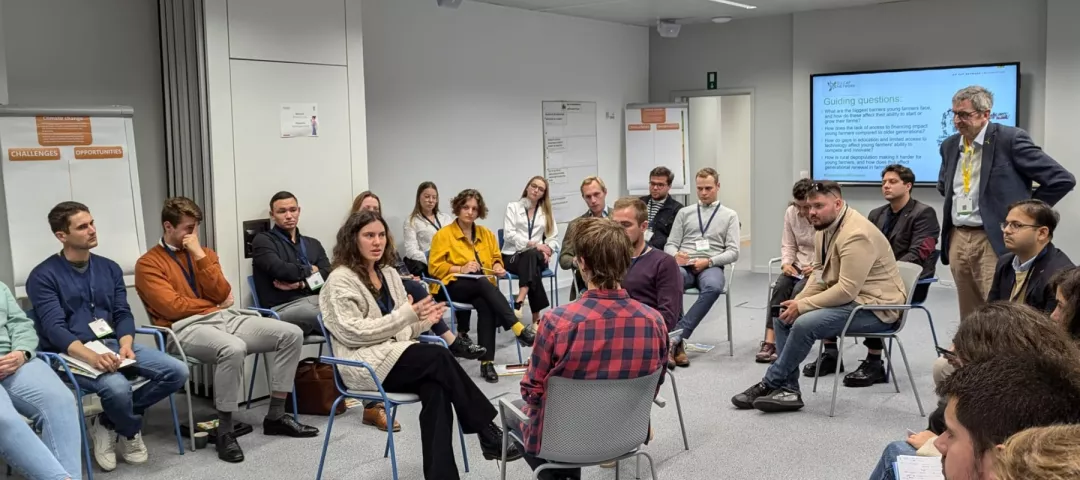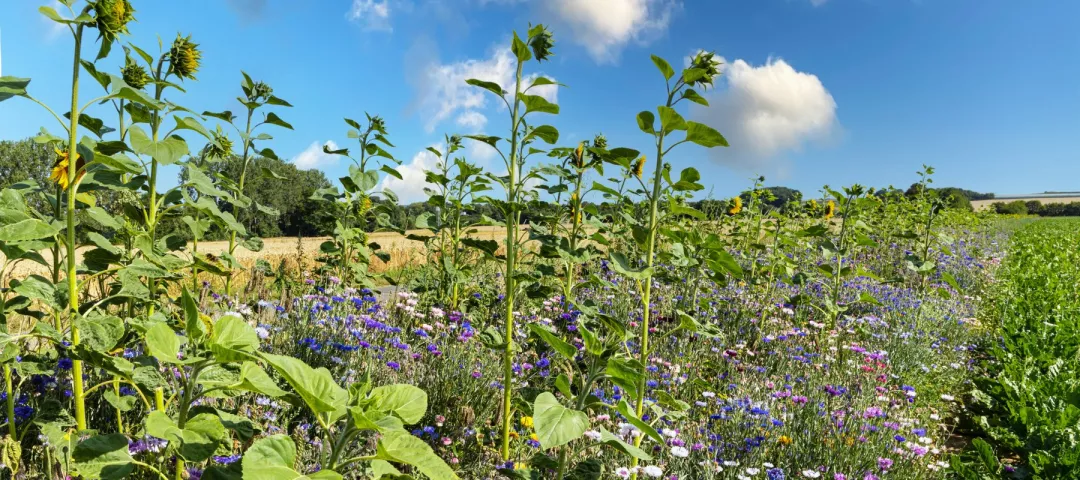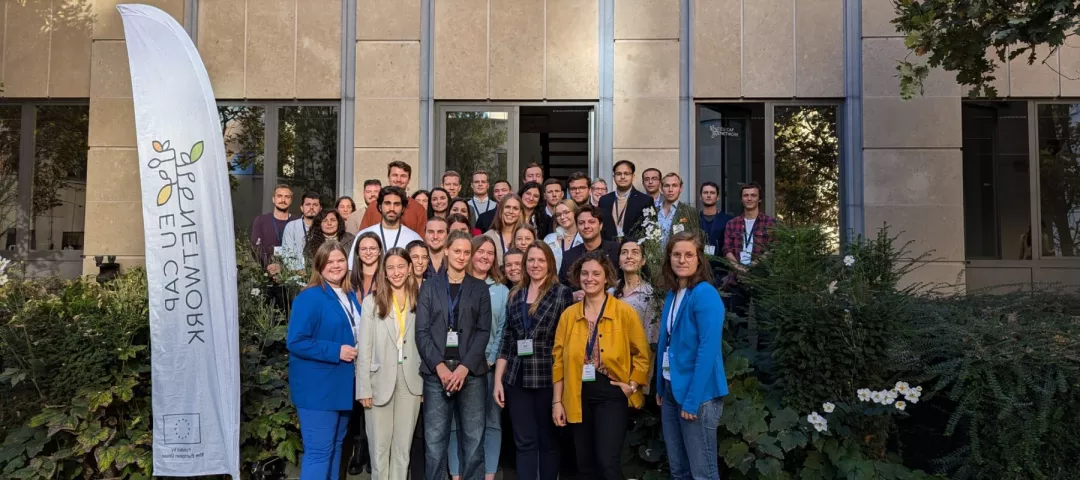A promising start for our new Thematic Groups
More support for young farmers and improving the uptake of biodiversity measures are the main topics discussed at our new Thematic Groups. Learn more about the first discussions and the next steps.

Two new Thematic Groups (TGs) by the EU CAP Network have recently kicked off, as part of the regular thematic work devoted to the CAP implementation. The TGs are an opportunity for their members (CAP stakeholders selected through an open expression of interest) to exchange experiences, improve policy implementation, and provide inputs for future policy developments.
Both our current TGs had their respective first meeting in the past weeks, with dynamic exchanges and promising conversations.
Encouraging biodiversity in farming

The new TG on Enhancing Biodiversity on Farmland for Improved Resilience is examining what changes are required in terms of both scheme design and implementation to encourage greater uptake by farmers invested in biodiversity. The aim is to enable a significant increase in the delivery of biodiversity outcomes on the ground to improve the sustainability of farming practices, the restoration and establishment of habitats, and the resilience of farming systems.
The background paper for this TG analyses the state of biodiversity in the EU's agricultural landscapes, looks at landscape-scale biodiversity schemes adopted in different Member States, and examines opportunities offered by the CAP. The paper also includes stakeholders' feedback on current issues, and outlines the challenges involved in fostering biodiversity in farming, including: limited information provision, awareness and knowledge exchange; the lack of tailor-made, context-specific schemes at the landscape scale; and farmers’ reluctance to adopt biodiversity measures.
During the first TG meeting on 23 September 2024, TG members shared some good practice examples of initiatives for delivering biodiversity outcomes on farmland at the landscape scale (including the Irish agri-climate-rural-environment scheme, the Dutch collective approach for environmental, climate-related and other management commitments (AECC), and a floodplain grassland area managed as commons in Croatia). In interactive sessions, TG members identified the success factors and main challenges relating to the main themes emerging: (i) effective scheme design for engaging farmers and encouraging landscape-scale approaches, (ii) improving the understanding of economic and environmental benefits of biodiversity action, (iii) understanding the full potential of the range of CAP interventions to improve biodiversity outcomes on farmland,(iv) facilitating coordinated action, and (v) improving monitoring and evaluation.
The second and final TG meeting is scheduled for 13 November, and will allow TG members to co-design recommendations on how to improve biodiversity schemes on farmland at scale.
Supporting generational renewal in farming

In the programming period 2023-27, supporting generational renewal in agriculture is, for the first time, a specific objective of the CAP. Member States can tailor their approaches to the national context and country-specific conditions in their CAP Strategic Plans (CSPs) and can combine different interventions to achieve this objective. However, better targeting is needed for policies to adapt to the increasing diversity in farm profiles. The Thematic Group on Gen Z: Leading Generational Renewal in Farming is a platform to discuss the key characteristics and roles of future farmers from the perspective of young people, to examine current CAP measures, and to develop policy recommendations to support the next generation of farmers. Importantly, young farmers from “Generation Z” (born between 1996 and 2010) make up most of the TG members, so young people lead the conversation and are not just “talked about”.
The background paper for the TG, which sets the scene for the group's work, offers a comprehensive picture of young farmers in the EU (from a quantitative and qualitative perspective), and highlights the challenges they face and the opportunities they represent for the future of farming. The document points out the crucial role of youth organisations in rural areas for advocacy, empowerment, and skills development, and stresses the need to keep generational renewal a high priority in future policy frameworks.
The first Thematic Group (TG) meeting, held in Brussels on 23 October 2024, began with a focus on the key challenges facing young farmers, such as limited financing, education, and rural depopulation. In interactive sessions, participants examined how megatrends – climate change, consumer demands, and technological innovation – are shaping EU agriculture. They also discussed five farmer profiles and their possible journey over the next decade, along with ways for them to adapt to challenges and seize opportunities.
Throughout the day, participants made a strong call for genuine support on generational renewal, cautioning against “youth-washing.” Collaboration was emphasised as essential, with community and shared knowledge seen as the backbone of resilient farming, while peer networks were deemed vital for sustainable growth and mental health support.
The second and final TG meeting is scheduled on 11 December 2024. Participants will discuss how policies should align with the farmer profiles they have developed, and how to support their development.
Engage with our Thematic Groups!
If these topics resonate with you and your work, the EU CAP Network offers various ways to engage with the Thematic Groups.
Each TG page is regularly updated with useful resources, including background papers, presentations from the events and relevant publications.
Key outcomes from the TG meetings are posted live on social media (@EUCAPNetwork) during the events, using the hashtags #BiodiversityForResilience and #GenerationalRenewal.
For further details or to share other relevant information, use the email addresses of each Thematic Group to get in touch directly with our team. Also note that the TG on Generational Renewal in Farming has launched a collection of good practices supporting the involvement and empowerment of young people in agriculture, which is open for submissions by all CAP stakeholders until 1 December 2024. Good practices in the use of the CAP to support young people's involvement in farming, and other areas, are always welcome at implementation@eucapnetwork.eu.